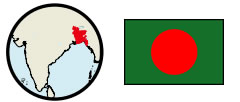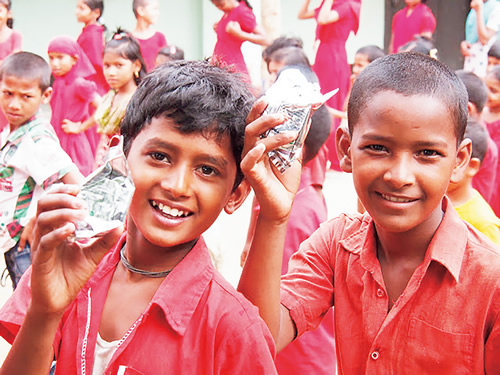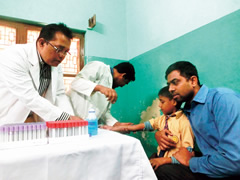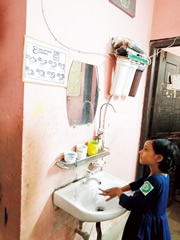JICA utilizes a wide range of approaches to work with private organizations and citizens for nutrition improvement.

Bangladesh
Euglena Cookies to Save Children

Two boys delighted to get Euglena cookies.
Bangladesh, where over half of the population-84 million people-live on less than USD 150 a month. In Dhaka, the capital, underdevelopment and low body weights are significant problems among children of low-income families living in slums, who are most likely to suffer from undernutrition.
Taking up the challenge is euglena Co., a company operating in Bangladesh. The company aspires to use the abundant nutrients in Euglena (a type of protist) to address the nutrition problem. Since 2014, the company has been delivering nutrient-rich Euglena cookies to schools mainly attended by the countries' poorest children. As of September 2019, this project, called the Euglena Genki Program, has supplied a total of 8.5 million cookies to school children.
However, a sustainable business model is necessary if the project to be sustained. JICA is cooperating with euglena Co. to study the viability of a system in which Euglena foods are sold to upper and middle-class Bangladeshis, and the profits are used to subsidize Euglena cookies for the most poverty-stricken children. As part of the project, blood tests and body measurements were taken by a local medical survey organization to determine the extent to which the cookies improved the children's nutrition. "Although the results didn't show a huge improvement, we were able to discover that intestinal parasites might be preventing nutrient absorption," said euglena Co.'s Ebana Tomoyasu.
In a hygiene awareness survey carried out at schools participating in the Euglena Genki Program, it was also discovered that only 21 percent of children knew how to wash their hands correctly. The company is currently not only providing cookies, but is also working to improve hygiene standards, such as teaching correct hand-washing techniques.

The blood tests primarily measure for anemia.

Children learn how to wash their hands correctly.




scroll